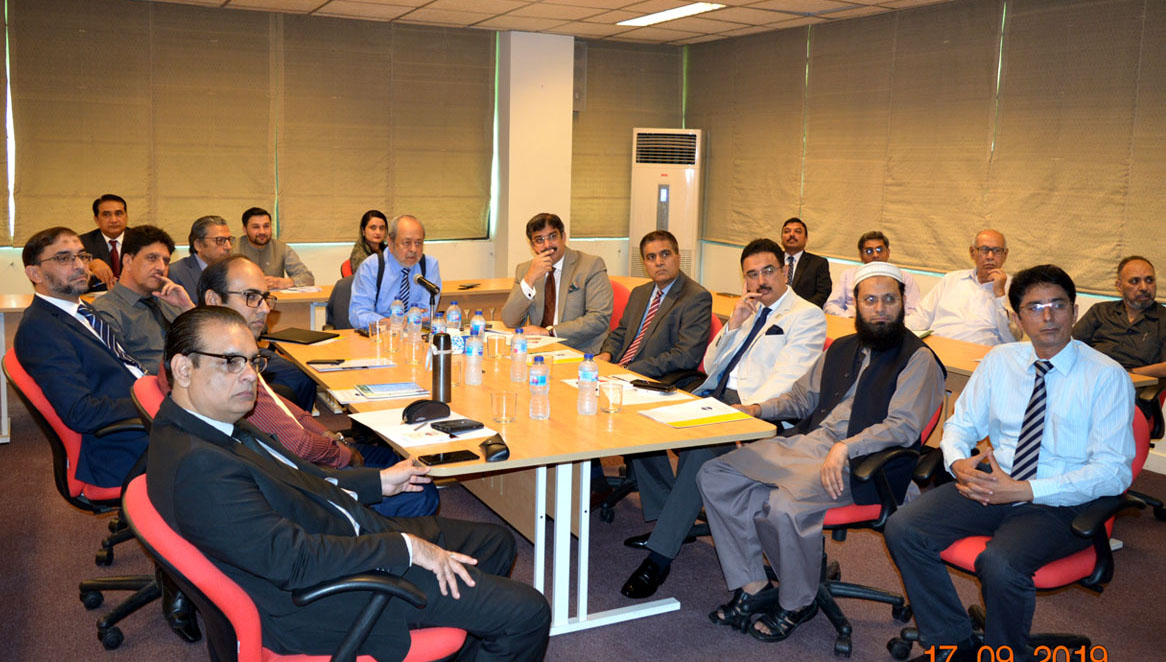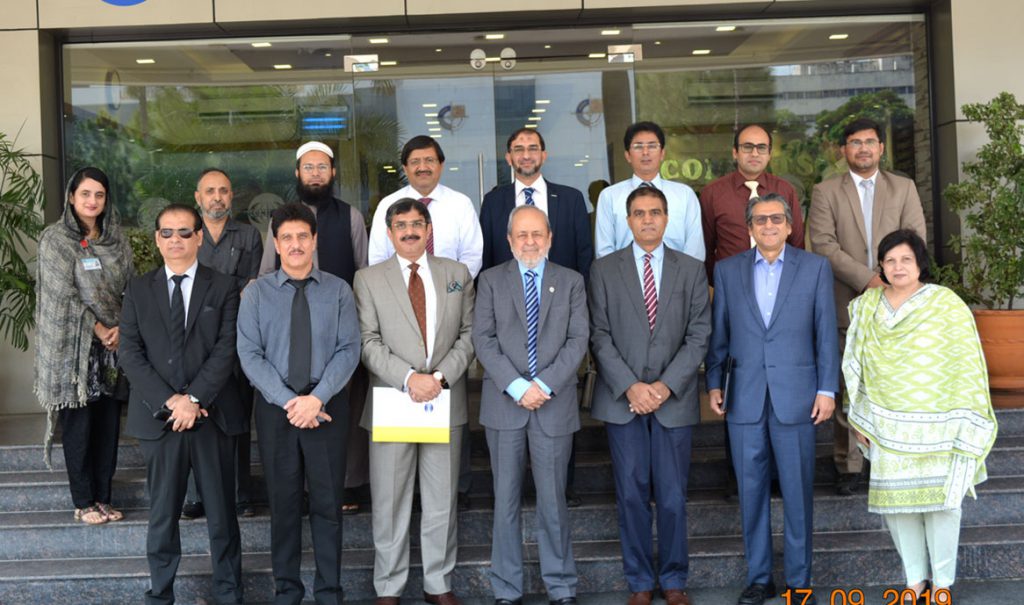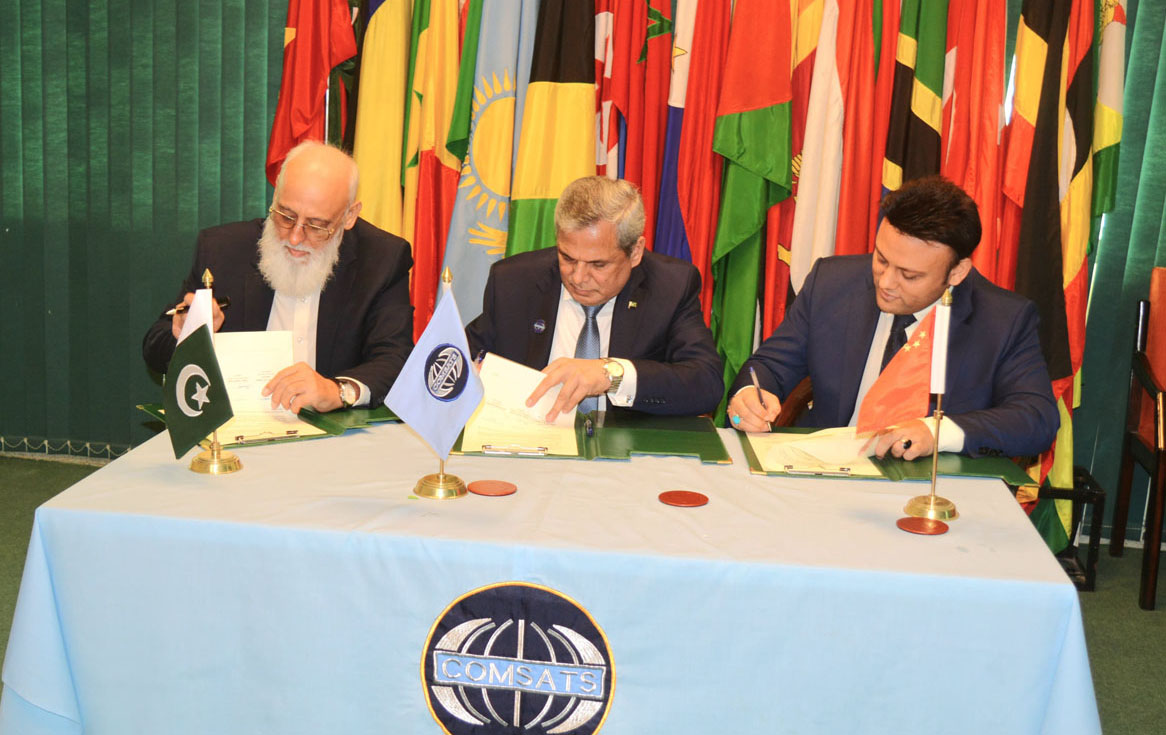A consultative meeting on COMSATS’ upcoming “Accra Forum on S&T for Sustainable Development” and fourth General Meeting of the Commission, was arranged at the Secretariat of the Organization. The aim was to engage experts and scientists from academia, higher education and IT sector to share their experiences, views and thoughts to help rationalize plan of the said Forum and Meeting.
Prior to deliberations on the meeting’s agenda, Executive Director COMSAT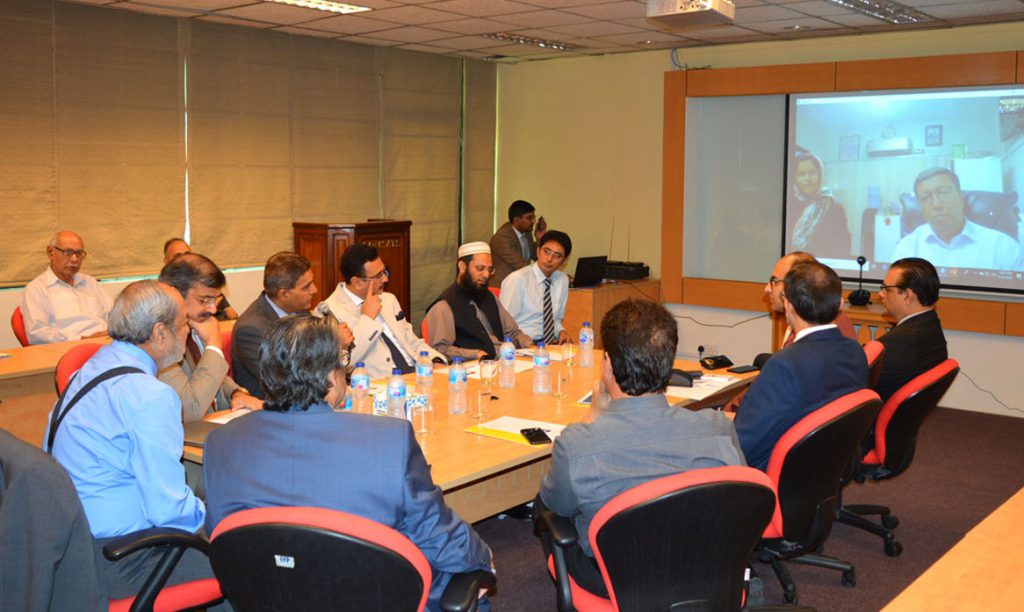 S, Dr. S.M. Junaid Zaidi, gave a briefing on COMSATS with a focus on COMSATS’ membership demographics, S&T and economic standing of the member states, statutory bodies and their meetings, current and future initiatives for addressing climate change, education, and health related challenges in the twenty-seven (27) Member States of COMSATS.
S, Dr. S.M. Junaid Zaidi, gave a briefing on COMSATS with a focus on COMSATS’ membership demographics, S&T and economic standing of the member states, statutory bodies and their meetings, current and future initiatives for addressing climate change, education, and health related challenges in the twenty-seven (27) Member States of COMSATS.
While informing the audience about COMSATS’ forthcoming General Meeting and Accra Forum, Dr. Zaidi stated that the meeting will help streamline COMSATS’ undertakings in the backdrop of 2030 Global Agenda and would help the Organization in gaining due momentum for achieving its objectives. Further, Dr. Zaidi introduced Nana Addo Dankwa Akufo-Addo, President of Ghana and Chairperson of COMSATS, as a strong personality of global prominence in various circles including those relating to SDGs.
The discussions during the meeting focused on identification of problems 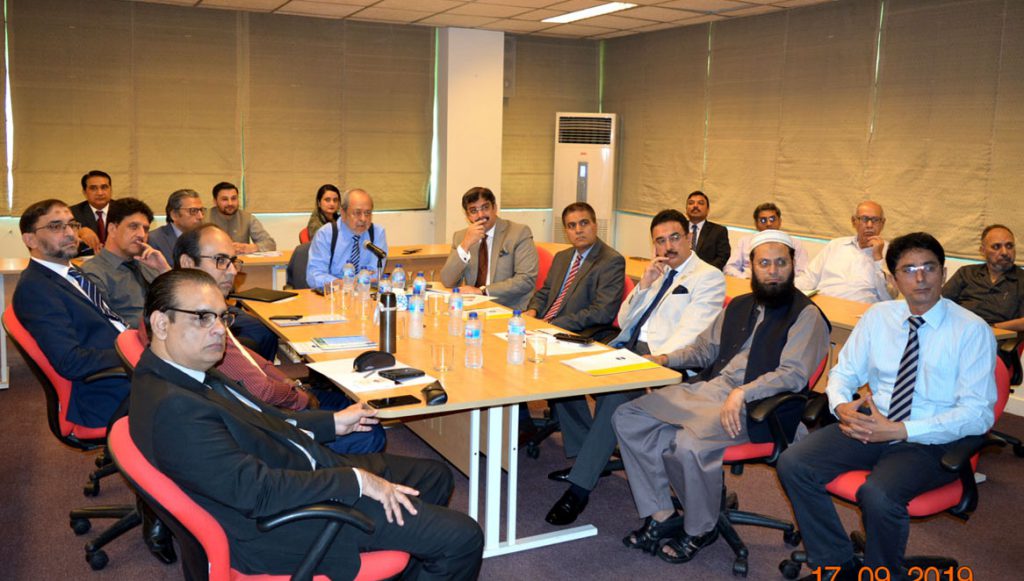 specific to the developing world that need strategic focus and judicious backing from high-level bodies. It was noted that developing countries lack means and tools to meet all the targets of the Global Agenda but have some indigenous strategies that can be harnessed. In this scenario, it was suggested, there is an increasing need to develop roadmaps for the translation of SDGs identified in accordance with the indigenous problems and challenges of the developing world. The countries, it was highlighted, should capitalize on their comparative advantages and improve the existing practices and processes in manufacturing and product development. It was also remarked that there is a need to focus on society for generating indigenous solutions. A number of S&T or SDGs related issues are inter-disciplinary in nature with a strong social element, such as climate change, environment, water resources, etc. In this context, universities can help address a number of issues by engaging their relevant departments.
specific to the developing world that need strategic focus and judicious backing from high-level bodies. It was noted that developing countries lack means and tools to meet all the targets of the Global Agenda but have some indigenous strategies that can be harnessed. In this scenario, it was suggested, there is an increasing need to develop roadmaps for the translation of SDGs identified in accordance with the indigenous problems and challenges of the developing world. The countries, it was highlighted, should capitalize on their comparative advantages and improve the existing practices and processes in manufacturing and product development. It was also remarked that there is a need to focus on society for generating indigenous solutions. A number of S&T or SDGs related issues are inter-disciplinary in nature with a strong social element, such as climate change, environment, water resources, etc. In this context, universities can help address a number of issues by engaging their relevant departments.
It emerged from the discussions that right investment in technical and vocational training as well as skill development of youth is equally important to quality education for employment generation and poverty reduction. Furthermore, it was opined that coherent mapping of social needs in various professions can help regulate policies for effective placement and distribution of human resource. In this context, monitoring and evaluation was considered important for effective policy implementation.
It was recommended that existing potential in various areas particularly, IT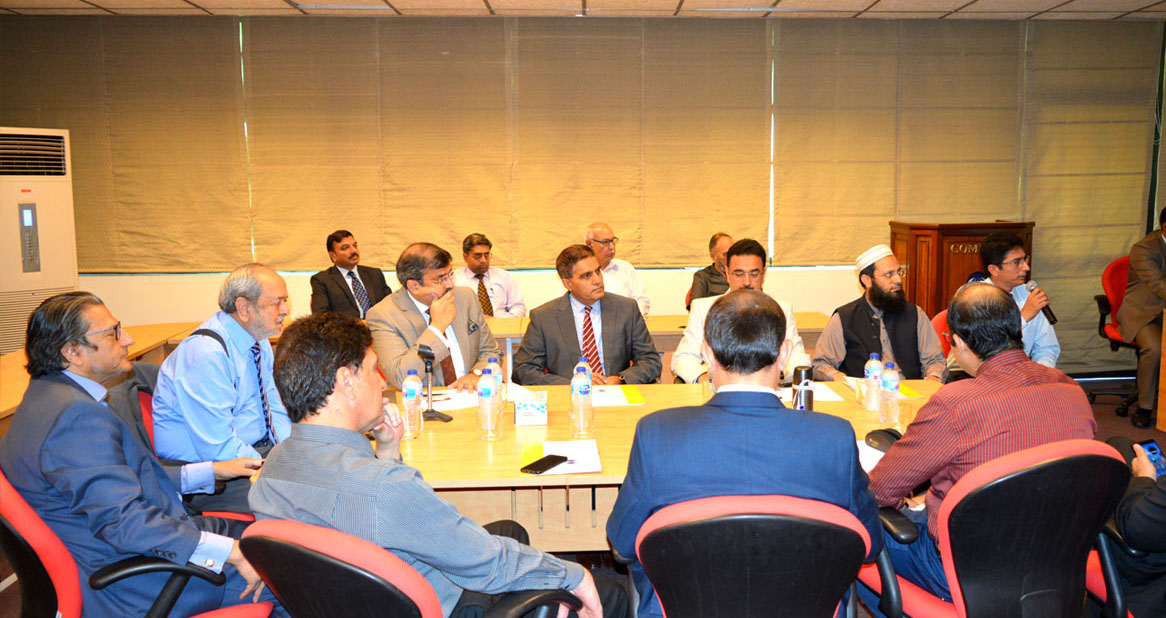 , manufacturing and agriculture, should be fully utilized and harnessed. It was indicated that for better economic gains and national development, inclination should be towards product development; innovation; and value added products and services. In the similar vein, wealth creation through commercialization of research and patents should be encouraged. In this connection, R&D institutions and industry linkages should be reinforced and Research, Innovation and Commercialization hubs in academic institutions should play their part by facilitating the industries. Universities should be incentivized to collaborate with industries to facilitate start-ups that would help build knowledge economy.
, manufacturing and agriculture, should be fully utilized and harnessed. It was indicated that for better economic gains and national development, inclination should be towards product development; innovation; and value added products and services. In the similar vein, wealth creation through commercialization of research and patents should be encouraged. In this connection, R&D institutions and industry linkages should be reinforced and Research, Innovation and Commercialization hubs in academic institutions should play their part by facilitating the industries. Universities should be incentivized to collaborate with industries to facilitate start-ups that would help build knowledge economy.
Moreover, development of resilient and sustainable scientific and technological infrastructure especially in emerging technologies in developing countries was greatly stressed upon and it was opined that such development could help promote cultural and scientific exchanges for sharing of experiences, knowledge and ideas. It was underscored that in accordance with the United Nations Goal 11, there is a need for a reasonable flow of rural settlements along with effective planning and monitoring of rural to urban migration for inclusive, equitable and sustained growth.
Other points discussed during the session pertained to: democratization and monetization of Artificial Intelligence (AI); data mining; rightful projection of R&D; means to harness the potential of North-South Cooperation; and government’s interventions for developing coherent and well-integrated systems.
Ambassador Shahid Kamal, Advisor (Climate Change), COMSATS Secretariat, stated that S&T is a powerful tool to aid the implementation of SDGs. The Forum will serve as a platform for better connectivity, communication and networking among COMSATS’ Member States.
The session provided a new insight for strategizing COMSATS’ future initiatives in the light of the emerging global needs and trends and within the framework of UN Sustainable Development Goals (SDGs).

